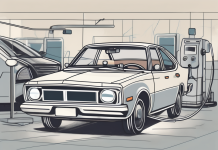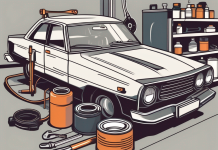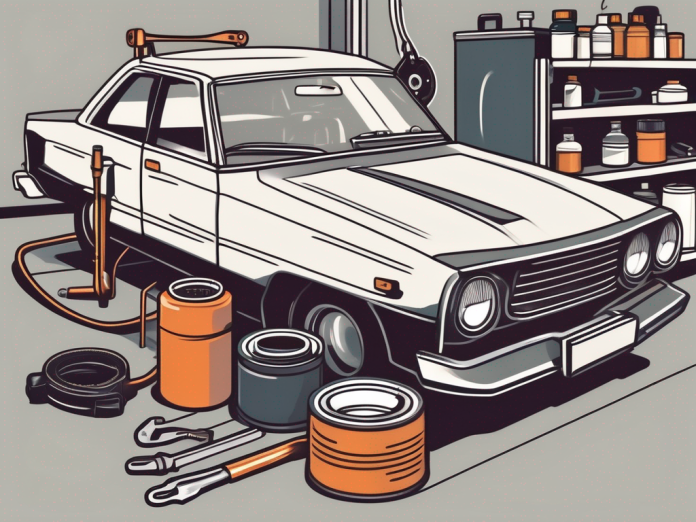As a first-time car owner, it’s important to familiarize yourself with the basics of car maintenance. Regular maintenance not only keeps your vehicle in top shape but also ensures your safety on the road. In this article, we will discuss some essential car maintenance tips that every first-time owner should know.
Understanding the Basics of Car Maintenance
Regular car maintenance is crucial for the longevity and performance of your vehicle. It involves a series of tasks that are necessary to keep your car running smoothly. By following these maintenance tips, you can avoid costly repairs and ensure a worry-free driving experience.
When it comes to car maintenance, staying proactive is key. Regularly checking and changing fluids such as oil, coolant, and brake fluid can significantly impact the overall health of your vehicle. Additionally, inspecting and replacing air filters, spark plugs, and belts at recommended intervals can help prevent potential issues and keep your car in top condition.
Importance of Regular Car Maintenance
One of the most important aspects of car ownership is regular maintenance. It helps to identify and resolve any potential issues before they become major problems. Regular maintenance checks help to prevent breakdowns, improve fuel efficiency, and extend the lifespan of your vehicle.
Another critical aspect of regular car maintenance is tire care. Ensuring that your tires are properly inflated and have adequate tread depth not only enhances safety on the road but also contributes to better fuel efficiency. Rotating your tires regularly can help promote even wear and extend their lifespan, ultimately saving you money in the long run.
Familiarizing Yourself with Your Vehicle’s Manual
Every car comes with an owner’s manual that contains valuable information about your vehicle’s maintenance schedule and specific guidelines. Take the time to read and understand the manual thoroughly. It will help you understand your car’s unique needs and provide guidance on when to perform specific maintenance tasks.
Moreover, familiarizing yourself with the warning lights on your dashboard is essential for proactive car maintenance. Understanding what each light indicates can help you address issues promptly and avoid potential damage to your vehicle. Regularly checking for any illuminated warning lights and taking appropriate action can help keep your car running smoothly and safely.
Essential Maintenance Tasks You Can Do Yourself
While some maintenance tasks require professional help, there are several tasks that you can easily do yourself. These tasks not only save you money but also give you a sense of accomplishment. Here are a few essential maintenance tasks:
Checking and Changing the Oil
Regularly checking and changing your oil is vital for your car’s engine health. Your owner’s manual will specify how frequently you should change the oil, typically every 3,000 to 5,000 miles. Changing the oil involves draining the old oil, replacing the filter, and filling up with new oil. It’s a straightforward task that ensures proper lubrication and protects the engine.
Maintaining Proper Tire Pressure
Keeping your tires properly inflated not only improves fuel efficiency but also enhances safety and performance. Check your tire pressure regularly and maintain the recommended inflation levels. Underinflated or overinflated tires can lead to poor handling, reduced traction, and uneven tire wear. Refer to your owner’s manual for the correct tire pressure.
Replacing Windshield Wipers
Clear visibility is essential for safe driving, especially during harsh weather conditions. Windshield wipers play a crucial role in maintaining a clear view of the road. Over time, wiper blades can wear out and become less effective. Inspect your wiper blades regularly and replace them if they are worn or leaving streaks on the windshield.
When to Seek Professional Help
While there are maintenance tasks you can handle yourself, some issues require the expertise of a professional mechanic. Here are a couple of scenarios where seeking professional help is necessary:
Recognizing Signs of Engine Trouble
As a first-time car owner, it’s important to be aware of signs that indicate potential engine problems. If you notice unusual noises, vibrations, or your check engine light comes on, it’s best to take your car to a qualified mechanic. Ignoring these signs can lead to more significant and costly damage in the long run.
Understanding When to Replace Brake Pads
The braking system is one of the most critical safety features of your car. Over time, brake pads wear out and lose their effectiveness. If you experience squeaking or grinding noises when braking or notice that your braking distance has increased, it’s time to have your brake pads replaced. Consult a professional mechanic to ensure the proper installation of new brake pads.
Seasonal Car Maintenance Tips
In addition to regular maintenance, there are specific tasks you should consider based on the season. These tasks will help your car perform optimally and keep you safe in different weather conditions.
Preparing Your Car for Winter
Winter conditions can be harsh on your vehicle. Before the cold weather sets in, consider the following tasks:
- Check and replace antifreeze if necessary
- Inspect and replace old or worn-out tires
- Ensure the battery is in good condition
- Check and replace worn-out windshield wipers
- Keep an emergency kit in your car with essentials like a blanket, flashlight, and ice scraper
Summer Car Care Tips
Extreme heat can also take a toll on your car. To keep your vehicle running smoothly during the summer months, consider the following tips:
- Check and top up coolant levels regularly
- Inspect and replace worn-out tires for better grip
- Keep your car’s exterior clean and waxed to protect the paint from the sun’s rays
- Ensure your air conditioning system is functioning properly
- Regularly clean the interior to prevent dust buildup
Long-Term Car Maintenance Strategies
As a first-time car owner, it’s beneficial to plan for long-term maintenance to keep your vehicle reliable and maintain its value. Here are a few strategies to consider:
Planning for Regular Inspections
Schedule regular inspections with a qualified mechanic to ensure that all components of your car are in good working condition. Routine inspections can catch potential issues early on and prevent them from becoming more significant problems.
The Role of Preventative Maintenance in Car Longevity
Preventative maintenance is key to extending the lifespan of your car. By following your owner’s manual and performing regular maintenance tasks, you can avoid unexpected breakdowns and costly repairs down the line. It’s also important to address any minor issues promptly to prevent them from escalating into major problems.
By following these essential car maintenance tips, first-time owners can maintain a safe and reliable vehicle. Remember to refer to your owner’s manual for specific instructions and enjoy the benefits of a well-maintained car for many years to come!




























